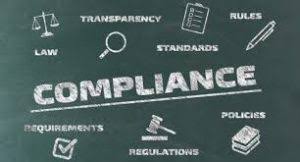DOJ’s Perspective on Clawbacks and Deferred Compensation Systems (Part III of III)

DOJ’s decision to examine corporate compensation programs as an important part of a compliance program should be welcomed. DOJ’s initiative asks a very good question – how can incentives and disincentives be used to promote compliant behavior without unjustly punishing shareholders who bear the brunt of large corporate penalties?
DOJ wisely decided to open this issue to further examination through a consultation process. The possible tools include crafted compensation systems that incorporate compliance as an important incentive and disincentive factor. To the extent a corporate compensation program is able to target bad actors legally and practically for punishment – either through disqualification for certain monetary benefits or through recovery of prior bonus or other benefit payments – companies should consider and evaluate likely impacts from such measures.
The crafting of these measures will require a collaborative process involving senior management, ethics and compliance, human resources, legal and business representatives. In some cases, union representatives, particularly in European countries (e.g. work councils) may need to be included as well.
As an initial matter, it is clear that any compliance driven clawback program will need to extend beyond senior management. Of course, depending on the scope of bonuses and deferred stock and compensation systems, the precise contours of the program may initially require evaluation of extending these programs to a wider class of officers and managers, and then further consideration of specific tailoring to categories of actors and range of potential offenses.
DOJ has made it clear, at least preliminarily, that it anticipates requiring a wide, clawback program, sufficient to maximize effective coverage of directors, officers, senior managers, as well as a broad definition of misconduct to maximize accountability for supervisory failures. The interesting issue, from DOJ’s perspective, is what additional measures will DOJ consider. If DOJ takes a broad brush approach, it may extend compliance compensation systems to dig into potential stock and benefit vesting programs and even look at other corporate benefits, including retirement and other types of benefits (excluding health care for obvious reasons).

As an example, some companies offer employees access to low-cost financing, educational benefits (e.g. tuition support), in-kind receipt of goods and services from a company(at no or discounted costs, e.g. a discount on a new car from GM), as well as other specific compensation systems. DOJ could easily mandate that these types of programs be analyzed under some kind of clawback analogy or qualification factor that could require repayment of certain benefits by bad actors. The possibilities in these areas reflect the overall contours of existing corporate benefit programs beyond the standard few – salaries, bonuses, stock vesting and other traditional compensation systems.
DOJ has welcomed ideas on these issues and clearly is looking for more beyond the standard set of clawback and disqualification punishments that can be imposed against bad actors. It is now incumbent on companies, compliance professionals and others to bring “new” ideas to the table.

CCOs have always wanted to maximize incentives and disincentives to promote positive behaviors by corporate actors. Luckily, CCOs now have the support of DOJ prosecutors for this initiative. CCOs have to craft creative solutions and begin to design and implement such programs, with due regard for continuing analysis and tweaking when appropriate.
The new era of compliance will not occur overnight, but will take time. It is, however, a fruitful endeavor that can quickly elevate the efficacy of every complaince program that incorporates new compensation-oriented tools.















